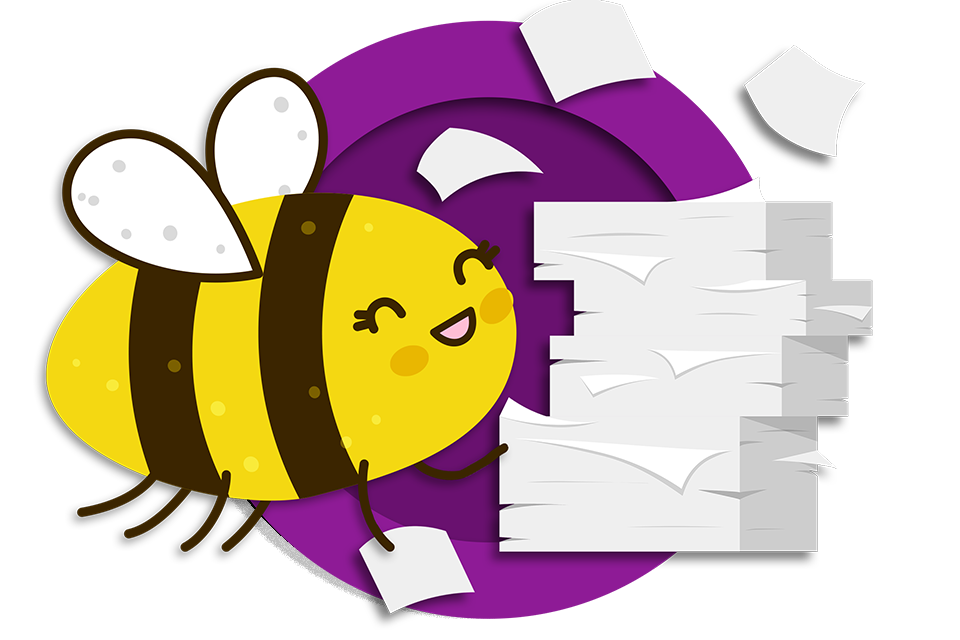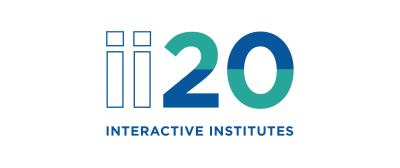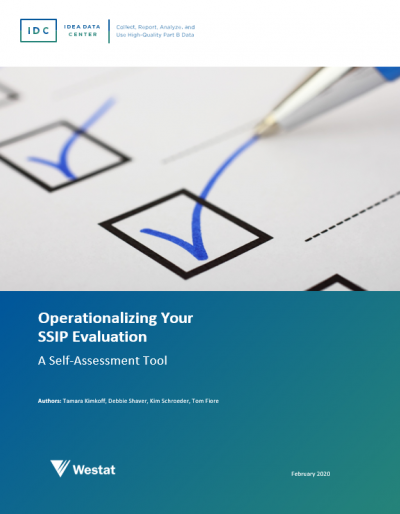
Resource Library
Guides. Briefs. Toolkits. Quick reference information. IDC and its partners created these data quality resources to help states better prepare to address their existing or emerging IDEA data quality needs. Use our search and filtering tools to navigate the library.
Resources 29 - 35 of 88
Format: Trainings
OSEP Straight TalkThis OSEP Straight Talk plenary at IDC’s 2020 Interactive Institute in Fort Worth this past March presented information on how to access Coronavirus guidance from the Centers for Disease Control and the Readiness Emergency Management for Schools Technical Assistance Center. The presentation offered a look at what’s new at OSEP and featured updates on major OSEP initiatives and work of OSEP’s Research to Practice and Monitoring and State Improvement Planning divisions. Participants learned about resources on restraint and seclusion; OSEP’s release of 10 new 618 data files; current investments to support data use; and how to access the OSEP TA&D network. They also learned about key OSEP efforts related to the SPP/APR, differentiated monitoring and support, state Part B and Part C grant applications, and the new significant disproportionality reporting form.
Format: Guides and Briefs
Operationalizing Your SSIP Evaluation: A Self-Assessment ToolThe purpose of this tool is to lead those within a state responsible for implementing their SSIP evaluation through the process of operationalizing their SSIP evaluation plan in tandem with implementation efforts. State staff can use this interactive self-assessment to gauge their team’s progress on key components necessary for fully executing their SSIP evaluation plan and to identify action steps needed to realize the greatest benefit from their evaluation efforts.
Format: Applications and Spreadsheets
Nonresponse Bias Analysis ApplicationThe NRBA App is an interactive nonresponse bias application powered by state-of-the-art statistical software. We developed this application to help states examine their SPP/APR Indicator 8 and Indicator 14 data through nonresponse bias analysis. The NRBA App allows users to conduct reproducible analyses of response rates, representativeness, and nonresponse bias, tailored to their survey’s data collection method.
Format: Guides and Briefs
Navigating Voluntary Coordinated Early Intervening Services (CEIS)This technical assistance document focuses on helping SEAs and LEAs better understand voluntary CEIS and its reporting requirements. It also provides examples of various data collection and reporting methods states use to collect and report voluntary CEIS data.
Format: Quick Reference
Navigating Uncharted Waters: Engaging Stakeholders in Part B Indicator 3 Baseline and Target SettingThis customizable resource includes a PowerPoint template and presentation notes that provide states with an overview of the Part B SPP/APR reporting changes to Indicator 3, which addresses participation and performance of children with individualize education programs (IEPs) on statewide assessments. The resource reviews the new requirements related to stakeholders, particularly parents, in the SPP/APR and implications for Indicator 3 and shares strategies for engaging stakeholders in the optional baseline and required target setting processes. States are able to customize the information in the PowerPoint to reflect their own contexts and to meet the needs of different audiences.
Format: Guides and Briefs
Navigating Coordinated Early Intervening Services (CEIS) Frequently Asked Questions (FAQ)This FAQ document focuses on helping SEAs and LEAs understand CEIS and its reporting requirements. SEAs and LEAs can use the resource in conjunction with the OSEP Guidance Memo 08-09.
This video on MOE Reduction and CEIS details the IDEA information captured for LEAs, including their IDEA allocations, MOE compliance status, provision of CEIS, and counts of students receiving CEIS. This is one of a series of videos that provide high-level introductions to the data states must report as part of Section 618 of IDEA.








